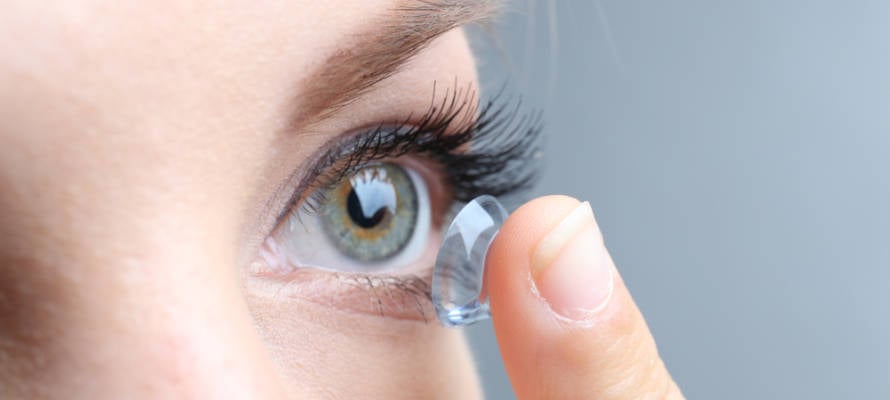Kenig, through Lensy, has developed a 3D printer for contact lenses that dries material using UV rays.
By Shula Rosen
Imagine going to the optometrist and walking out in just minutes with a pair of contact lenses that correct your vision and are comfortable to wear.
That sounds like a dream come true for those who would love to wear contact lenses but find them too uncomfortable or inconvenient.
However, an Israeli startup, Lensy, is developing a 3D printing process that will form-fit contacts, making wearing lenses more comfortable.
Edan Kenig, CEO of Lensy, told Israel21C that many people give up on contacts because mass-produced lenses are created with the “one-size-fits-all” mentality.
He compares getting fitted for contacts to trying on a pair of shoes.
“It’s like going into a shoe store,” says Kenig, “and all the shoes are size nine [42 in Europe]. So if you’re size nine, great. If you’re size eight, you will have some problems. But if you’re seven or 11, it’ll be impossible.”
Although the mass-produced contact lenses may work for 70% of wearers, 30% will be forced to continue wearing glasses.
Kenig said, “He added, “The further you are away from the average fit, the more problems you’re going to have, such as people with a high astigmatism, people with high myopia and people with peculiar eye shapes that are not round and not spherical.
Even the 70% who can tolerate regular contacts may find the fit not ideal, like Kenig himself.
The biophysicist-turned-entrepreneur said, “I would really like to wear contact lenses for the whole day, but now I’m limited to using them only for sport for a few hours because it’s not comfortable for me.”
Kenig, through Lensy, has developed a 3D printer for contact lenses that dries material using UV rays rather than squirting material out in layers.
Lensy has already printed its first contact lens on a specialty 3D printer, but the process still requires refinement before the product can be tested on a human eye.
The startup, founded in 2022 and based in Rehovot, has received support from the Israel Innovation Authority.
Although there are other company attempting to develop a similar printing machine and process, Kenig says they are relying on “large, cumbersome, expensive printers” to get the same job done.
The 3D printer will be leased to optometrists and cost $50 per eye.
“The optometrist will then have the opportunity to make a custom solution so the patient will have an affordable, comfortable fit that’s tailored to their needs,” Kenig said.
ANTISEMITISM IS SURGING, THREATENING JEWISH LIVES!
Join Six Million United Against Antisemitism!
We stand united against antisemitism and pledge to fight hatred and violence against the Jewish people and its institutions around the world.
Sign the petition - Declare 'Never Again is Now'!



